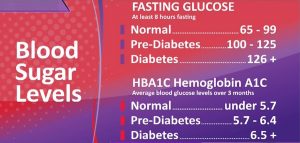The order in which you eat your food does matter, suggests the results of a new scientific clinical study.
According to the results of the study, the ideal order of your food consumption should be as follows:

First eat the vegetables
Second food you should eat is proteins
and lastly all other carbohydrates
According to the researchers, this order of food consumption was tied to a lower rise in blood sugar levels over the following two hours, compared to eating the same foods in the opposite order. They also say that people may benefit from their consumption of carbohydrates, right at the end of meals, instead of simply avoiding certain foods.
This means that: You will feel full for longer period of time and the decrease in blood sugar spikes should help with cravings! Also, it means that if you want to eat chocolate cake do so a while after vegetables and proteins.
The researchers also say that the absorption of the carbohydrates is somehow slowed down by eating vegetables, which are low on the glycemic index
The study results also indicates that overweight and obese people with type 2 diabetes may also feel better after a meal if they start it off with vegetables or proteins and end with carbs.
Type 2 diabetes is the most common form of diabetes and 30% of people with this form of diabetes are undiagnosed. Diabetes is also often linked to obesity. In type 2 diabetes, the body’s cells are resistant to the hormone insulin, or the body doesn’t make enough of it.
Blood sugar normally rises after eating, but for people with diabetes it can spike dangerously and by simply changing the order of food consumption it may help to manage blood sugar spikes.
References
http://care.diabetesjournals.org/content/38/7/e98.full
http://link.springer.com/content/pdf/10.1007%2Fs00125-014-3305-x.pdf
http://ajcn.nutrition.org/content/82/1/69.full.pdf
http://www.nutritionandmetabolism.com/content/1/1/6
Advertising

All information provided for information & education purposes only. Nothing published on https://dietmy.com is intended as substitution for medical advice, diagnosis, or for any treatment.




